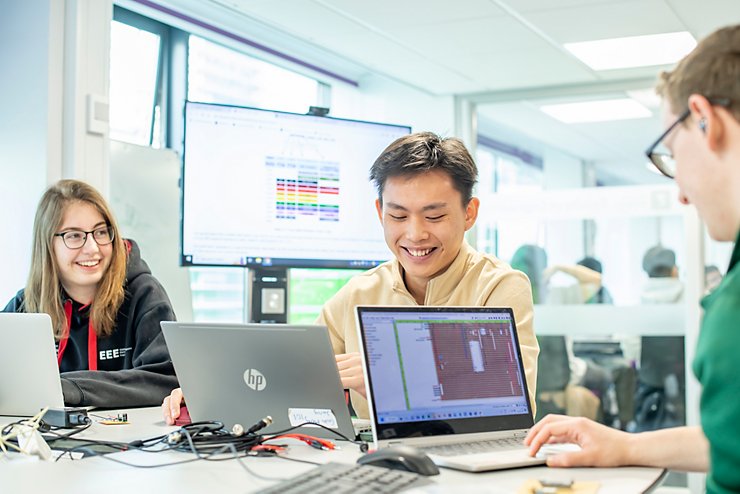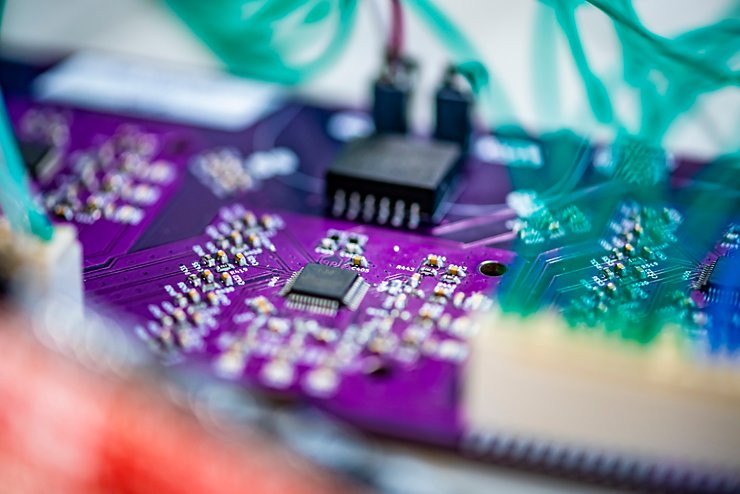Year in industry
On this course you may be able to spend a year working in industry where you could gain first-hand experience of the exciting challenges that are faced by engineers and refine the skills you have built so far in the course. While it is the student’s responsibility to find and secure a year in industry host, the Faculty of Engineering placements team will support you throughout this process.
Please note: In order to undertake an integrated year in industry, you will have to achieve the relevant academic requirements as set by the University and meet any requirements specified by the industry host. There is no guarantee that you will be able to undertake an integrated year in industry as part of your course. If you are studying a course with an integrated year in industry and you do not secure an integrated year in industry opportunity, you will be required to transfer to the version of the course without an integrated year in industry. This will be reflected in the title of your degree when you graduate.
Additional information
Please be aware that study abroad, compulsory year abroad, optional placements/internships and integrated year in industry opportunities may change at any time for a number of reasons, including curriculum developments, changes to arrangements with partner universities or placement/industry hosts, travel restrictions or other circumstances outside of the university’s control. Every effort will be made to update this information as quickly as possible should a change occur.
Year in industry
On this course you may be able to spend a year working in industry where you could gain first-hand experience of the exciting challenges that are faced by engineers and refine the skills you have built so far in the course. While it is the student’s responsibility to find and secure a year in industry host, the Faculty of Engineering placements team will support you throughout this process.
Please note: In order to undertake an integrated year in industry, you will have to achieve the relevant academic requirements as set by the University and meet any requirements specified by the industry host. There is no guarantee that you will be able to undertake an integrated year in industry as part of your course. If you are studying a course with an integrated year in industry and you do not secure an integrated year in industry opportunity, you will be required to transfer to the version of the course without an integrated year in industry. This will be reflected in the title of your degree when you graduate.
Additional information
Please be aware that study abroad, compulsory year abroad, optional placements/internships and integrated year in industry opportunities may change at any time for a number of reasons, including curriculum developments, changes to arrangements with partner universities or placement/industry hosts, travel restrictions or other circumstances outside of the university’s control. Every effort will be made to update this information as quickly as possible should a change occur.








